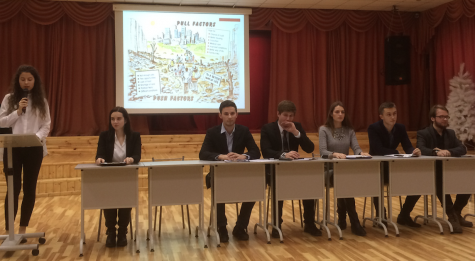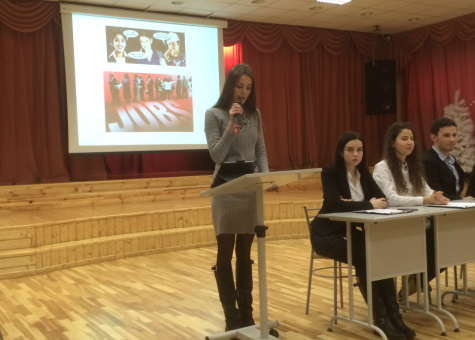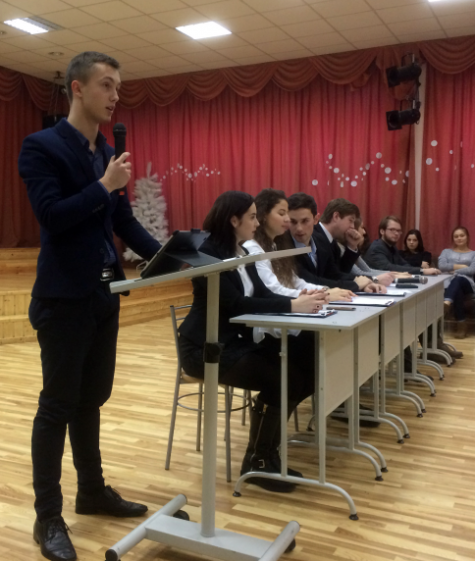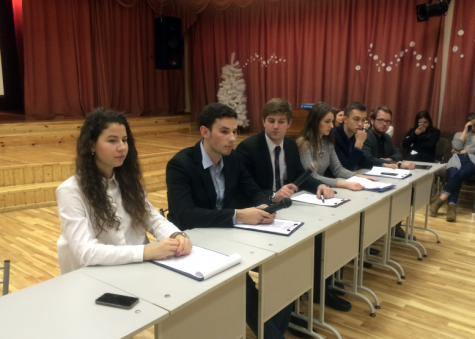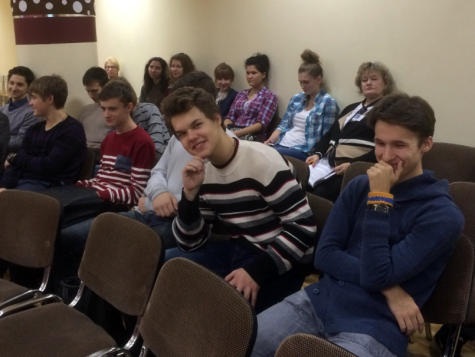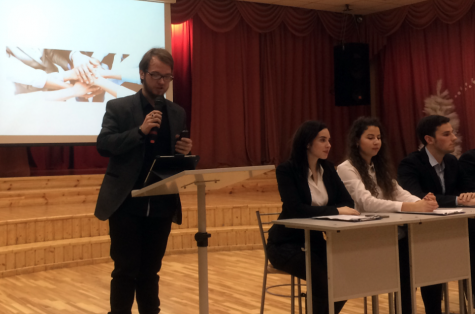Summary of the Panel Discussion on Human Migration on 10 December, 2015
The Panel Discussion on Human Migration was jointly organized by the members of the Debate Club and students of 11-12 forms.
1. Alina Ustinova chaired the meeting and made opening presentation. on the theme. Six panellists Jekaterina Polkovnikova, Georgijs Jagņuks, Kirills Kuznecovs, Ronalds Dzenis, Diana Jučinska and Dmitrijs Arkašarins made presentations on the theme.
2. The participants of the Panel Discussion on Human Migration exchanged information on the notion of migration, emigration and immigration, reasons of migration, trends, statistics, patterns, opportunities, challenges on migration.
3. Migration has the potential to improve human development outcomes for migrants and their families by raising incomes and improving education and health outcomes. Migration also greatly contributes to the development of countries of origin and countries of destination.
4. For the positive impacts of migration to be fully realized, appropriate policies and programmes need to be in place at all levels. Policy interventions may include: incorporating migration into national development planning, strengthening policy coherence between relevant Ministries, lowering the costs of migration, ensuring better working conditions for migrants, securing the portability of social benefits, promoting mutual recognition of diplomas and qualifications, strengthening preparedness and awareness of migrant workers in terms of technical and vocational training and job-oriented education,
5. It is recognized that migration would increase in the near future and that the root causes of this mega-trend would continue. The national and European response should not be based only on security and police operations. It is time to focus attention on migrants’ rights and on cooperation with countries of origin and transit.
6. It is supposed to make efforts to detect criminals and organized crime groups involved in facilitating irregular migration needed to be strengthened. It is necessary to adopt measures to prevent the illegal channels of migration.
7. For asylum-seekers and refugees, the impetus to move was to seek protection and to reach safety and this ancient right of sanctuary was based on their shared humanity and must be respected and given meaning within the modern migration context.
8. The Latvian immigration Law is the main legal regulation for immigration to Latvia. It was drafted in year 2003 and since then it was dramatically modified. Since Latvia has entered the European Union in year 2004 and opened its borders due to the Schengen agreement, many locals have left Latvia pursuing opportunities in other EU states – primarily during the crisis 2008-2010. Currently, Latvia offers residency for foreign investors, who are non-EU citizens. During the last year almost 3000 foreign investors have requested a residence permit in Latvia
Alina Ustinova
